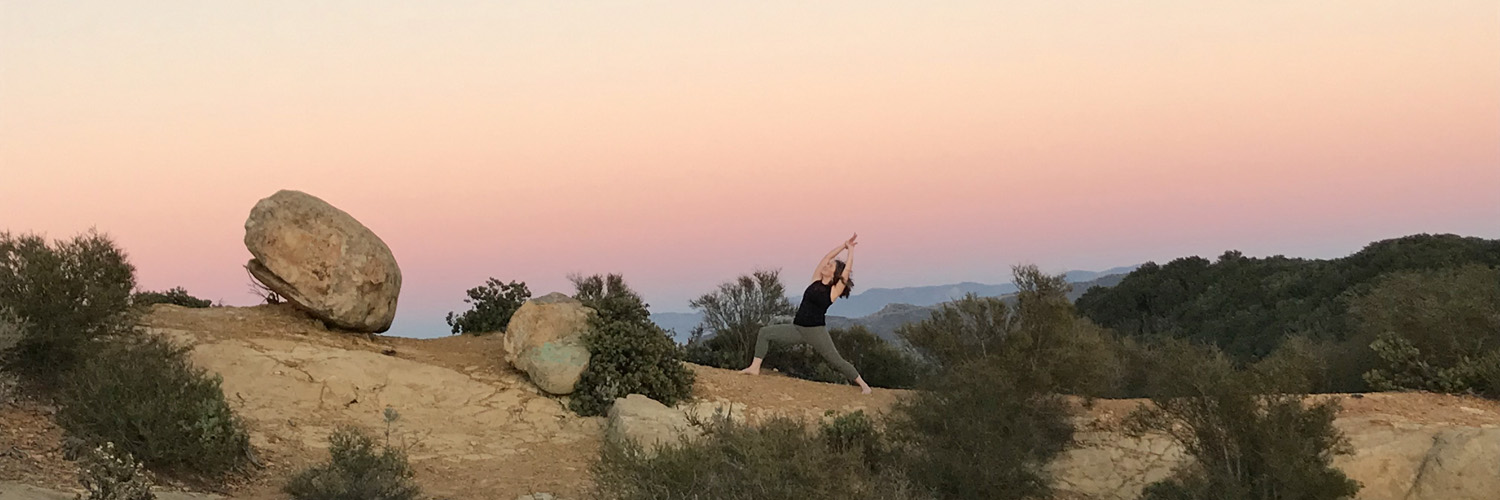Lets get right into it. We all suffer. We will continue to suffer and the kleshas are the root cause of our suffering. The kleshas are the obstacles to our spiritual growth and they are tendencies we all have. There are five kleshas and they are all rooted in the first klesha avidya or ignorance.
Within the context of the kleshas ignorance is not the same as being “confused” it is “not seeing clearly”. When we can end avidya the remaining kleshas also drop away; Unfortunately, avidya is the hardest klesha to overcome.
Not familiar with the kleshas? Here we’ll cover the basics of the kleshas and reflective exercises to work with the kleshas.
The First Klesha: Avidya (ignorance; not seeing clearly; incorrect knowledge)
Avidya is the first of the kleshas. Avidya is when we are ignorant of our true nature. Our true nature is the part of you that is always loving, peaceful and unchanging. Avidya is not knowing the way things really are. Of course, we tend to see things from our own limited perspective based on previous experiences.
Avidya shows up in many areas of our lives. It shows up in our relationships, our stories, our prejudices, our desires and fears. According to the Yoga Sutras, ” Avidya is to mistake the impermanent for the eternal, the impure for the pure, sorrow for happiness, and the not-Self for the true Self.
Reflection exercise: Ask yourself, “How does avidya show up in my life?” When have I mistaken the impermanent for the eternal, the impure for the pure, sorrow for happiness, and the not-Self for the true Self? What labels do I give myself? What do I identify with
? How do I compare myself with others? What labels do I use?
The Second Klesha: Asmita (egoism; false identification)
When we forget our true nature we begin to overly identify with I, me and mine. Of course the ego isn’t all bad. Svadharma, our “self nature”, is the positive or “good” ego showing up in our being. Svadharma moves us toward connection instead of alienation. Who we are at our core is unchanging. Our ego typically causes us to see ourselves as separate from others, creates alienation and makes decisions on our behalf without consideration for others. The ego has preferences and aversions.
False identification is confusing the nature of the seer (the true Self or purusha) with the nature of the instrument of perception. Asmita is when we identify with the parts of our body and mind that change and allow these things to define us. Who we are at out core is unchanging. When we identify with the parts of us that change (like job title, age, body, etc.) we set ourselves up for disappointment and suffering. When researching for this article I came across this quote about Asmita in the Yoga Journal.
Enjoying the transitory parts of our bodies is part of the beauty and richness of life. They are an important part of who you are, but they are not all that you are.
Reflection Exercise: Reflect on a time you felt like your most authentic and true self. How did it feel? Continue to cultivate gentleness and patience with yourself as you connect deeper to your true Self.
The Third Klesha: Raga (attachment)
Raga is the third of the kleshas. Raga is also one of the easier kleshas for us to “wrap our mind around”. We are inherently attached to pleasure. We have our favorite yoga poses, our favorite restaurants and favorite people. An example of Raga I heard in class the other day goes something like this: Say you have your favorite restaurant, you go there every week and you order the same thing each time. It hits the spot. It’s perfect and you couldn’t imagine ordering anything else. And then one night you go to this restaurant, you order your favorite meal and it doesn’t come out as you expect. I’m sure you can relate. What happens? How do you feel? Let down, disappointed, frustrated, maybe even angry? This is raga showing it’s ugly head.
When our ego is bruised or perhaps even inflated…. that is a strong attachment to our desires and attachment to our desires causes us pain and suffering. I read this statement on Yoganonymous, “When something brings us pleasure our brains want to repeat that experience and on some basic level we expect the things (and people) that give us a moment’s pleasure to make us happy.” We are looking for pleasure outside of ourselves and relying on our external world to fulfill this desire… unfortunately the fulfillment, the “buzz” from these external things doesn’t last. We rationalize our desires and often don’t even question them.
Raga isn’t letting go of the things we like, it is letting go of the expectations around them.
Reflection exercise: Take a moment to reflect on either your day or your week and notice where raga showed up. Perhaps even write it down. Did you rationalize it? Did it bring you pleasure or disappointment?
The Fourth Klesha: Dvesa (aversion)
Dvesa, or aversion, is the fourth klesha. When we allow ourselves to be controlled by strong desires we develop strong aversions when those desires or not fulfilled.
Let’s try another plausible real life example. You go to your normal Saturday morning yoga class with your favorite vinyasa teacher. You show up and someone else is in your spot. Grrr. You put your mat down (or *gasp* you ask them to move out of “your” spot) and begin your pre-class rituals. It’s 8:55am and you realize that your favorite teacher is nowhere to be seen. A few minutes later a sub walks in and this sub’s voice really gets under your skin. Then she puts on her music and it’s SHIT! WTF! The universe must be conspiring. Now you’re pissed. You’re not in your spot. Your favorite teacher isn’t there. And that music…OMG! You see that downhill spiral? Now you’ve got your panties in a bunch and have moved into alienation, me vs. you. You likely won’t be open enough to receive this teacher’s message/teachings.
Your ego has attached to all that is changing. You’ve developed some pretty intense attachments and aversions and now they’ve caused you pain and suffering.
Reflection Exercise: Reflect on a time when you were in a challenging situation. Perhaps a situation where you expected one thing to happen and it didn’t. How did it feel? What was your response? With what you know now… how could you have responded differently? Could you have looked at it as a gift? As an opportunity for growth.
The Fifth Klesha: Abhinivesa (fear of death)
Abhinivesa, or fear of death, is the fifth klesha. Abhinivesa is clinging to bodily life and once again it stems from avidya, not seeing clearly. Abhinivesa is confusing the temporal with eternal. We naturally don’t like change, especially when we don’t know what’s next. We experience pain and suffering when we realize that we lack the ability to control life. Death is a natural process and to fear it over life creates only more fear and more suffering.
How do we counteract the fear of death? We accept that everything in this material world changes. We can choose to live in a manner that is aligned with our highest values.
Reflection exercise: Ask yourself “what is truly important?What is truly worth my time and effort?” Knowing that your time and energy is limited how would you like to change your life? Would you shift your perspective or attitude? How would you live your life?
- 2024’s Most Inspiring Books on Yoga, Motherhood, and the Path of Transformation - March 28, 2024
- Gratitude Revolution: Simple Ways to Spark Joy in Your Life - November 21, 2023
- Yoga and the Immune System - May 17, 2021

 Ambuja Yoga
Ambuja Yoga 




